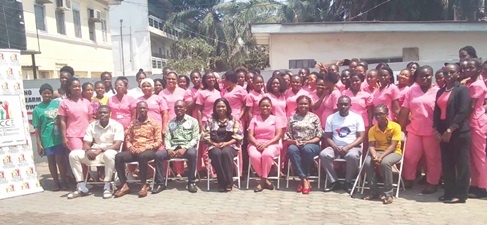
NCCE campaigns on peaceful, informed electioneering
The National Commission for Civic Education (NCCE) has embarked on a public education campaign for specialised institutions towards peaceful and informed electioneering in the country before, during and after the December elections.
In collaboration with the International Foundation for Electoral Systems (IFES), and sponsored by the United States Agency for International Development (USAID), the campaign involves an educational outreach by the NCCE that targets the youth, who constitute the largest segment of Ghana’s population, on the electoral process and its significance.
The initiative aims to empower first-time voters with the knowledge of the electoral process, accountability and sovereignty.
Last Wednesday’s exercise saw the NCCE engage students of 2nd Image, a beauty clinic in Accra, in a series of topics related to elections and a peaceful outcome.
During the interaction, the Greater Accra Regional Director of the NCCE, Mawuli Agbenu, emphasised the commission’s efforts to ensure a violence-free 2024 general election.
“The youth are the largest segment of Ghana’s population, making up 38.2 per cent of citizens between 15 and 35 years,” Mr Agbenu said.
“We’re targeting this demographic group to make them understand the electoral process, recognise the threats of money in politics, vote-buying, misinformation and disinformation,” he added.
The Election Specialist of the International Foundation for Electoral Systems, Gilbert Sam, also emphasised the importance of civic education for youth aged 15-25 to prevent exploitation and to promote responsible participation in the electoral process.
He stated that young people were vulnerable to misinformation, disinformation and fake news, adding that these could lead to violence.
“We’re teaching them critical thinking skills, conflict resolution and religious tolerance to prepare them for constructive engagement,” Mr Sam said.
He added that the initiative would engage both in-school and out-of-school youth, including vulnerable categories such as motorbike taxi operators and head potters.
He said other marginalised groups would be targeted to prevent manipulation to ensure informed participation.
The Lead Trainer of the International Foundation for Electoral Systems, Juliet Adime Amoah, urged the students to take up leadership roles, emphasising that “the future of Ghana’s democracy depends on your active participation, critical thinking and responsible leadership”.
